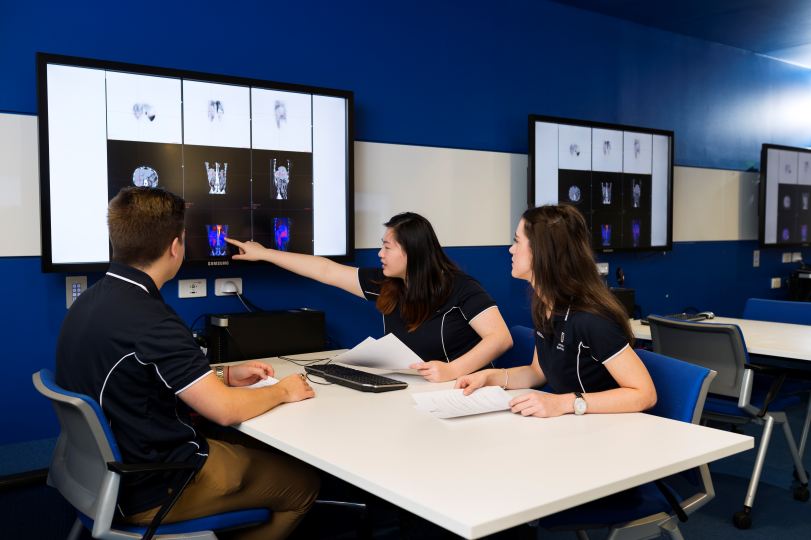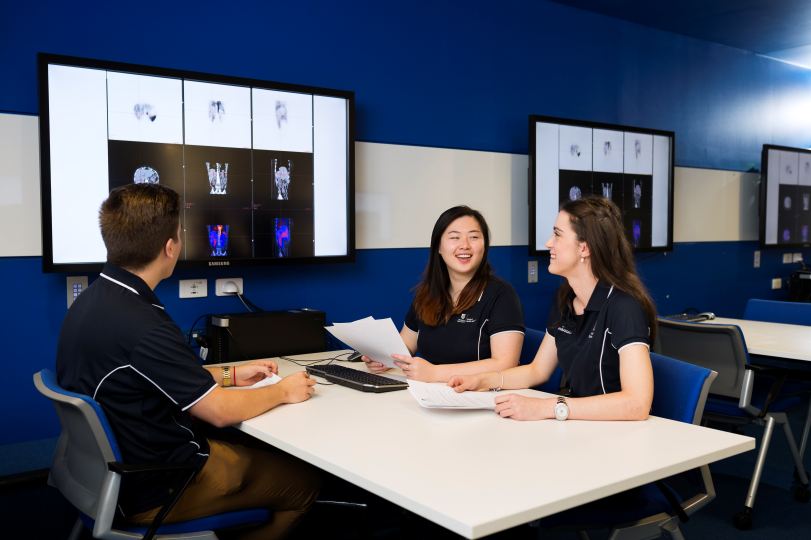Bachelor of Medical Radiation Science (Nuclear Medicine)
Degree Level Undergraduate
Year 2025
You're considered an Australian student if you are any of the following:
Degree Level Undergraduate
Year 2025
Entry Scores
2025 Guaranteed Entry
Year 12 (Grades-based): NA
View Guaranteed Entry Info
2024 Cut-Offs
Year 12 (ATAR-based):
- Internal: 90.00
TAFE/RTO: Adv Dip
View full entry requirements
The admission criteria have been grouped to assist you to easily find the information most relevant to your circumstances. However, you may fit into more than one and the university will consider applicants against each of the relevant criteria.
Certain conditions apply. For more information refer to Appendix 4 of the University's Selection and Entry policy.
Applicants are required to meet one of the following criteria with a competitive result, and demonstrate that they fulfil any prerequisite requirements and essential requirements for admission:
Recent secondary education
Meet any prerequisite requirements with a minimum grade of C- or equivalent
AND
Applicants who have not achieved the Selection Rank required for automatic selection may be selected for any remaining places based on the grades of their year 12 subjects.
OR
Higher education study
OR
Vocational Education and Training (VET)
OR
Work and life experience
1Results in Clinical Sciences - 2018 Excellence in Research for Australia (ERA). 2ComparED (QILT) Graduate Outcomes Survey 2021-23– Full-time Employment Indicator (Domestic Undergraduate). SA public universities. 3Ranked #43, 2024 THE Young University Rankings.
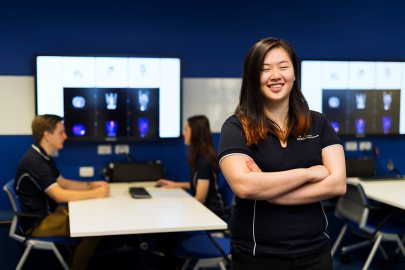
Unleash your unstoppable career in the rewarding and highly specialised field of nuclear medicine.
As a professional nuclear medicine technician, you will be responsible for preparing and administering radioactive substances to patients to evaluate the function of an organ and diagnose and treat disease. You will also work as part of an interprofessional team to deliver life-changing outcomes for patients.
We offer South Australia’s only degree to become an accredited nuclear medicine professional, and will prepare you to confidently join the workforce through a mixture of practical, theoretical, and industry learning.
High achieving students may be considered for the Bachelor of Medical Radiation Science (Honours) (Nuclear Medicine) program in the third year, where you’ll complete a research project and become prepared for a career in academia.
Students who undertake activities where interaction with patients/the public is required for their degree, such as field or clinical placements/visits and in University clinics and gyms, must demonstrate they meet mandatory pre-placement conditional requirements. These include criminal history clearance, a Working with Children Check and immunisation requirements.
Please visit the Clinical Placement Unit for information on key requirements, and to access the full student checklists.
All students enrolled in a program leading to professional registration must be registered with the relevant national board. The registration process is undertaken by the Australian Health Practitioner Regulation Agency (AHPRA) with the University providing notification to AHPRA following enrolment in the program.

Nuclear medicine technologists need to know how to confidently prepare and administer radioactive substances (radiopharmaceuticals) to evaluate the function of an organ or body system and diagnose and/or treat diseases. Throughout your degree, you’ll learn how to work with radioactive substances, and complement your clinical skills with valuable interpersonal skills such as communication and collaboration.
During your first year, you’ll focus on basic sciences at the core of the study and practice of medical radiation science. You’ll cover a range of topics, including anatomy, physiology, pathology and radiation physics. These core subjects introduce you to the scientific principles surrounding medical radiation.
You’ll apply these concepts to professional practice through clinical placements, which begin in your second year and continue through your third and fourth years.
Throughout your studies, you’ll take part in regular pre-clinical preparation workshops to further extend your skills as you move into advanced areas of practice.
You can gain an extra qualification and broaden your career prospects by completing a Diploma in Languages.
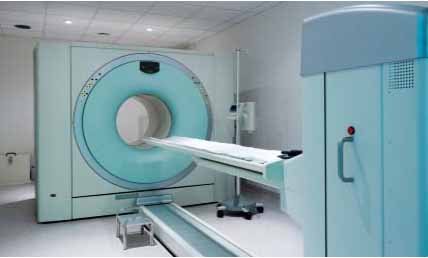
UniSA’s industry-led teaching methods offer you extensive practical learning opportunities, coupled with the support and mentoring from award-winning teaching staff and academics.
With the only degree of its kind offered in South Australia, UniSA gives you valuable hands-on experience using state-of-the-art imaging facilities on campus. You’ll study a curriculum informed by above world-class research in medical radiation science,1 and learn in-demand specialist skills.
Further practical experience is gained during more than 1,400 hours of clinical placements in Adelaide metropolitan, rural and interstate settings, ensuring you graduate career ready.
You’ll graduate with eligibility to register with the Medical Radiation Practice Board of Australia (MRPBA).
1Results in Clinical Sciences - 2018 Excellence in Research for Australia (ERA).
Medical radiation professionals are in high demand across South Australia and interstate,1 with strong application into international industry. You may work in a variety of settings, including hospitals and private clinics, medical equipment companies, or can continue into research.
A successful nuclear medicine professional should enjoy working with people and technology, helping sick or injured people, working a variety of hours, be interested in the human body, being challenged by new ideas, and being part of a team.
Upon graduating, you’ll be eligible for registration with APHRA and can work as a:
Through further postgraduate study or on-the-job training, you may upskill into roles like:
1 Australian Government National Skills Commission Employment Projections 2021.
Graduates are eligible to apply for general registration with the Medical Radiation Practice Board of Australia (MRPBA).
Have any questions? We're here to help! Contact Adelaide University's Future Student Enquiries Team.
Applying to study with us:
Please note that all pathways are competitive and no guaranteed due to limited places. A competitive Grade Point Average (GPA) and other entry criteria (including prerequisites) apply. For more information, visit unisa.edu.au/study or contact our Future Student Enquiries Team at unisa.edu.au/enquire or on (08) 8302 2376.
Australian
There are other pathways you can follow to study this degree, including:
International
There are other pathways you can follow to study this degree, including
This degree is available for deferment. This option is made available by responding to your offer during the application process via the SATAC website. Applicants who receive an offer into a midyear degree are eligible to defer for six months.
Every year, over 2,500 UniSA students are supported in their studies through scholarships and grants worth millions of dollars. Check out the scholarships below. One of them may be perfect for you. Visit our scholarships page for more.
$5,000 scholarship for South Australian students with an ATAR of 99 who enrol to study a UniSA undergraduate degree.
Up to $10,000 per annum (full time) for South Australian students who obtain an ATAR of 99.95 or IB equivalent and enrol to study at UniSA.
Our campuses are home to fantastic facilities including modern lecture theatres, libraries, workshops and laboratories, as well as spaces that simulate real work environments. But you’ll also discover that your journey at UniSA is about social experiences, healthy living and getting involved. You’ll find student sports and fitness facilities, community clinics, tech zones and chill-out spaces. There are campus sport activities to keep you active, and if you are keen to explore the social side of university life, there are movies, cooking demonstrations, parties and loads more.
Adelaide also has a variety of accommodation options to suit different requirements and budgets. Options include dedicated student accommodation and private rentals. See our long-term accommodation pages, or explore our student accommodation by Scape on Bank Street in Adelaide’s lively cultural precinct, an ideal location for students. It is within easy reach of UniSA’s city and metropolitan campuses, Rundle Mall shopping, the Central Market, Chinatown, and the West End’s vibrant nightlife. It is also across the road from the Adelaide train station, and on bus and tram routes.
As a nuclear medicine student, you’ll have access to industry-standard, on-campus computer software packages for image manipulation.
You’ll also be able to experience a range of on-campus spaces including modern lecture theatres, collaborative teaching rooms, and relaxed student lounges.

I have over 20 years of professional experience in local and international clinical practice as well as in academia. I’m interested in the application of innovative learning and teaching methodologies within the clinical and academic learning environments, and how these environments interconnect.
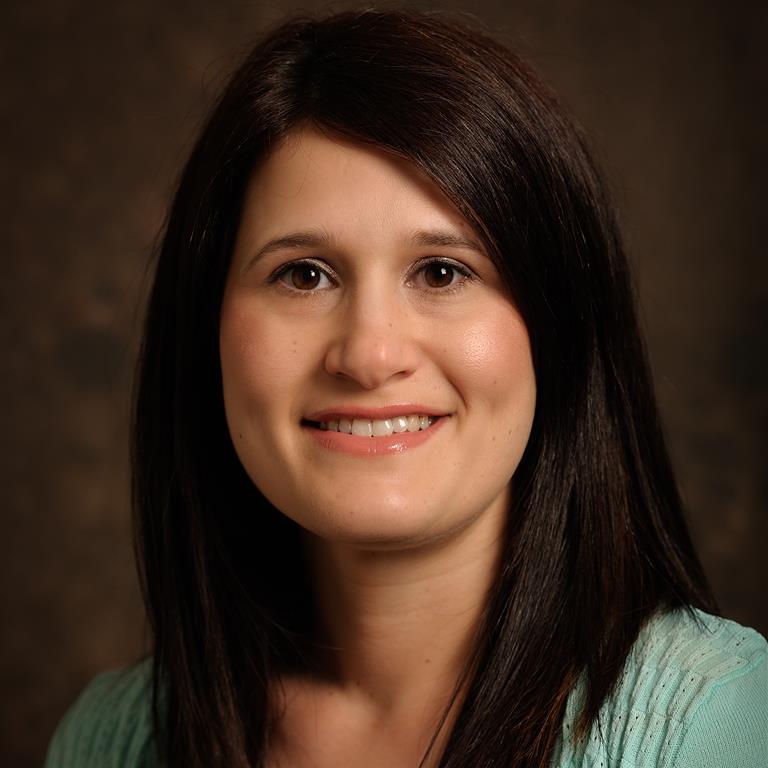
The way you apply for UniSA will depend on the undergraduate or postgraduate coursework degree you're interested in studying.
The majority of applications are made via the South Australian Tertiary Admissions Centre (SATAC). Check out more information on the SATAC website and follow the appropriate process for your degree of interest.
There are a small number of degrees that you need to apply for through direct application processes. The process you need to follow will be listed on the 'How to Apply' section of the degree homepage, but you'll also be taken to where you need to go if you hit the 'apply' button.
If you are interested in studying one of our 100% online degrees you'll need to apply directly to UniSA Online.
You can find more information about the application processes for UniSA on our How to Apply webpage.
If you're more interested in applying for a postgraduate degree by research, check out and follow the information in our step by step guide to applying.
Applications for all degrees will close ahead of study commencing, but the timelines may vary for undergraduate and postgraduate degrees.
The deadline to apply to study a degree at UniSA for semester one (commencing late February) and be guaranteed equal consideration is generally in very late November or early December. While you may be able to apply after this date, you are not guaranteed to be considered equally with other applicants and your application may not be assessed in time for the main round of offers. More competitive degrees may not make any offers after the main offer round. Find more information on the Key Dates section of the SATAC website, but you can also call the Future Student Enquiries team for more information on 08 8302 376.
Many postgraduate by coursework degrees do not have set closing dates. The exceptions are highly competitive degrees, so it is best to check – either on the degree homepage on the SATAC website or by checking with our Future Student Enquiries team.
As most postgraduate applications are assessed as they are submitted and offers are continuous, there are no set closing dates for applications. Degrees can be filled and closed with little notice so it is best to apply as soon as possible to avoid missing out on a place. For more information, please contact our Future Student Enquires team on (08) 8302 2376 or submit an enquiry.
You may be eligible for credit or advanced standing for your chosen UniSA degree based on your previous studies, if they are in a related area and completed within a certain timeframe. Receiving credit or RPL will reduce the number of courses you undertake within the degree, and may also reduce the overall duration of your degree. You can read more about our pre-existing credit agreements through our online Credit Assessor. If you have related industry experience, you may also be eligible to receive recognised prior learning (RPL) for this experience. Credit and RPL is assessed by the Program Director once you've received an offer, and you apply through UniSA's current student experts, Campus Central.
Future Student Enquiries welcomes the opportunity to meet with you to discuss your study options at UniSA. We can discuss degree information, entry requirements and pathways, applications, general career outcomes and student life, so you have the information to make the best study decision for your future. Head to our Book an Appointment webpage to find a date and time to speak with us, and take your next steps on journey to university study.
Bachelor of Medical Radiation Science (Nuclear Medicine) student Zoe, shares her experiences
